Email Archiving solutions provide organizations with a comprehensive way to store, manage, and retrieve email communications seamlessly. They ensure compliance, enhance data retrieval processes, and boost operational efficiencies.
Organizations seek Email Archiving solutions to achieve compliance with legal and industry regulations, maintain secure and organized email storage, and improve searchability of archived messages. These systems support retention management, facilitate quick e-discovery, and ensure data protection. They play a crucial role in preventing data loss and ensuring information transparency.
What are the main features of Email Archiving solutions?Email Archiving solutions are implemented in sectors like finance, healthcare, and legal industries where compliance and data retrieval are critical. These solutions adapt to industry-specific regulations and accommodate large volumes of daily communication.
Email Archiving is beneficial for organizations by ensuring that emails are preserved correctly, facilitating compliance, reducing risks, and securing data, which supports an organization’s operational and legal processes efficiently.
| Product | Market Share (%) |
|---|---|
| Microsoft Defender for Office 365 | 26.8% |
| Barracuda Email Protection | 25.2% |
| Google Vault | 5.6% |
| Other | 42.4% |


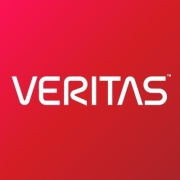

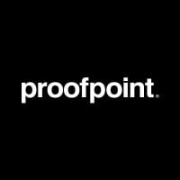
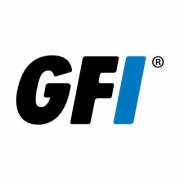






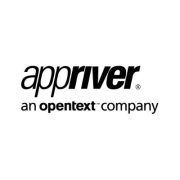




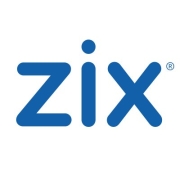


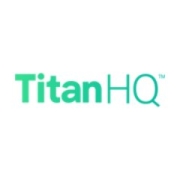





For organizations in which data permanence is a priority, email archiving tools are a necessity. Prior to the emergence of email archiving software, organizations would rely on users to maintain their own email archives and IT teams were responsible for backing up a user’s email. If an organization has to monitor and curate data from thousands of mailboxes with thousands of communications, email archiving becomes an essential tool. Once emails are archived, the archiving platform provides a searchable index, giving you the ability to sift through bulk emails in minutes instead of weeks. Moreover, email archiving is necessary to satisfy industry regulations which oftentimes require preserving all email communications in the case of an audit or investigation.
With an email archiving software system in place, your organization will also be able to complete quick and efficient backups in case a ransomware attack happens. In case your email system is ever the target of a cyberattack, archiving software guarantees that business operations are protected and don’t get compromised, and it also ensures that your email data is preserved and managed properly.
When emails are archived, they reside in a secure repository that lives outside of production environments. When incoming or outgoing messages are received, they are indexed along with any attachments that may be connected to them. The contents of the email are then retained and saved in their original format, and preserved in a read-only format.
An email archiving solution is a solution that involves an automated process for all emails (incoming, outgoing, and internal) whereby email communications are captured, indexed, deduplicated, and archived. This can be done via a cloud environment or an in-house appliance. Email archiving solutions have become a fundamental part of corporate electronics record management and information governance.
Archived emails certainly have an impact on storage capacity. Each communication takes up space. However, if an attachment recurs in more than one email message, email archiving software will only save one instance. More storage can be reclaimed by reducing the number of electronic message communications on mail servers. Once this is completed, backup times are also accelerated.
With limited space to store thousands of emails, most people tend to delete them rather than archive them. However, if your end goal is to be able to access or retrieve business-critical information within those emails at a later date, it is worth your time to archive them. Once deleted, emails are no longer searchable. Some organizations even go the extra length to impose mailbox size limits to prevent performance issues. Archiving emails can be better than deleting them so your organization can remain compliant with federal and industry-specific regulations. It can also be helpful to archive emails rather than delete them because it can protect your business from potential legal actions. Moreover, archiving emails minimizes the risk and liabilities that can occur from poor management of records.
While exceptionally useful for many archives, email archiving software can also be complex and difficult to use. It is not uncommon for email archiving software to frequently incur spiraling costs because of the rate at which email archives continue to exponentially grow. Unfortunately, many solutions cannot scale as quickly as growing enterprises need. Enterprises also experience challenges when they need to merge email data from legacy systems. A merge can often be a time-consuming process because it involves massive amounts of data, and the process can result in being more complex than expected. Not only that, but it utilizes more time than IT teams can actually afford to spend working on it when other high-priority tasks need to be completed. In addition, not all legacy email systems are compatible with newer technologies, which can make data migration even more cumbersome and costly.
The benefits of email archiving solutions include:
Some of the best email archiving software features include:
Selecting the solution that’s best for you can be a challenge, but not if you properly do your research. When you are trying to decide which choice would be most suitable, make sure to invest in a solution that is scalable, cloud-based, and secure. Another helpful tip is to ensure it fully complies with both agency regulations and federal laws that are specifically applicable to your industry. In addition, it is useful to have a drag-and-drop feature so that users can easily move messages in and out of their inboxes as needed. Look out for a solution that has intuitive search capabilities, and also one that provides mobile access to personal email archives on the go from virtually any device.
Email archiving and management solutions can become costly and complex if not handled by the right software. IT Central Station (soon to be Peerspot) users advised users to look for email archiving software that will be end user-friendly to cut down on confusion and the number of misplaced archives. The software should take care of the user data and make it easy to retrieve this data. Additionally, members suggested looking for high-throughput and storage space that is easy to expand.
Email Archiving ensures that all your emails are stored in a secure and retrievable format, which helps meet legal and regulatory compliance requirements. It allows easy access to historical emails, making audits and investigations more straightforward and ensuring that you can demonstrate adherence to data protection regulations when needed.
What are the benefits of cloud-based Email Archiving solutions?Cloud-based Email Archiving solutions offer scalability, easy access from anywhere, and cost-effectiveness compared to on-premise solutions. You don't need to invest in expensive hardware or worry about server maintenance. These solutions also provide advanced security features and regular updates to protect your data, ensuring you always stay aligned with the latest technological advancements.
Can Email Archiving improve email system performance?Yes, Email Archiving can significantly improve your email system's performance by offloading the storage of old emails from your primary servers. This reduction in mailbox size enhances email system speed and efficiency, freeing up resources and ensuring your active email environment remains fast and responsive to users' needs.
What is the difference between Email Archiving and backup?Email Archiving and backup serve different purposes. Email Archiving focuses on preserving emails in a format that allows easy searching and retrieval, ideal for compliance and audits. Conversely, backups aim to restore entire email systems quickly after data loss due to disasters or failures, without enabling granular search and retrieval capabilities that archiving provides.
Why is it essential to have a retention policy in Email Archiving?A retention policy in Email Archiving ensures that emails are kept for the appropriate amount of time as dictated by legal, regulatory, or business requirements. It helps organizations manage storage costs effectively while mitigating risks by ensuring only necessary data is retained. A clear retention policy also aids in efficient data management and facilitates compliance with industry regulations.